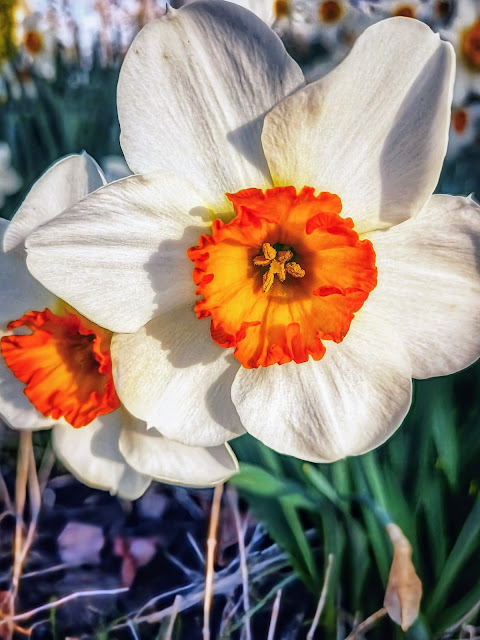"We were all meant to be naturalists, each in his own degree, and it is inexcusable to live in a world so full of the marvels of plants and animal life and to care for none of these things." ~Charlotte Mason, British Educator 1824-1923
Bumble Bee on a Garden Cosmos Flower
If we are all meant to be naturalists, then we need to know what one is. Certainly, Charlotte has given us the idea that we are surrounded by the marvels of the natural world which are meant to be explored and interacted with for our learning. Nature holds a treasure chest of wonders awaiting our observation and discovery.
Here are some common answers to the question, what is a naturalist?
A naturalist may be...
- an expert in natural history
- a person who adopts philosophical naturalism
- a person who studies natural history
- one who studies the natural world
Through community outreach, trained naturalists educate people of all ages about the local environment, wildlife habitats, and conservation practices that work to protect natural ecosystems.
Professional naturalists spend most of their time outdoors in the field taking observation notes, photos, and keeping a written record for future research.
Dogwood Tree Blossoms
We can learn to do something similar by keeping a nature journal. See my post Keeping a Nature Journal
Studying the natural sciences from one season to the next is an enriching activity for all ages. It assists in nurturing a greater appreciation for all life. Exploring the outdoors and observing nature can be a satisfying, lifelong experience.
"Earth and sky, woods and fields, lakes and rivers, the mountain and the sea are excellent schoolmasters, and teach some of us more than we can ever learn from books." ~John Lubbock, England Naturalist 1824-1913
Nature study in the field helps us to understand our personal responsibility to be faithful stewards of the environment. It grows an appreciation of all living things and helps us to be committed advocates working to protect natural resources for future generations. When we care for the natural world it protects life in every form. Naturalists build upon the knowledge and wisdom of those who came before them and communicate what they have learned for those who will come afterwards.
Charlotte Mason also said, "There is no education without nature." In other words, in order for us to benefit from the fullness of a generous and rewarding education, we must spend time in nature to thrive in a holistic manner. Learning about the natural world and how all living things are interconnected lays a solid foundation for the natural sciences.
If you're interested in learning more about how you can participate in outdoor learning experiences, education, or to get training as a Master Naturalist, please visit the Alliance of Natural Resource Outreach and Service Programs ANROSP to access resources, references, and networks within your local community.
Odenton, Maryland, USA





-01~2.jpeg)
